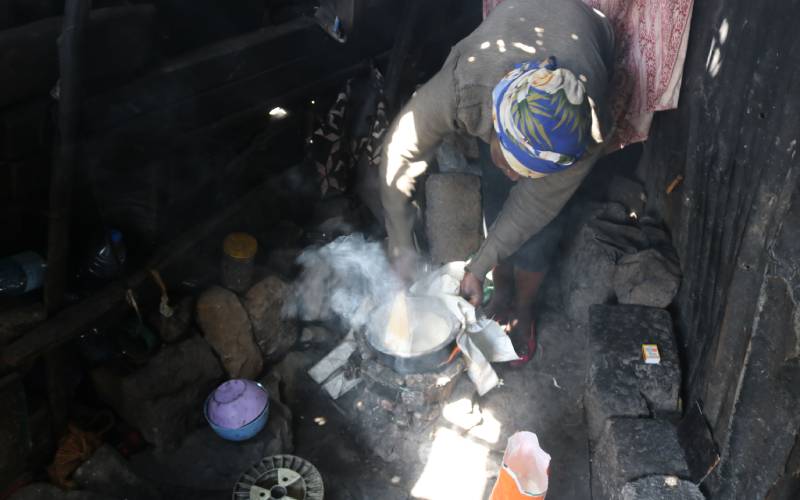×
The Standard e-Paper
Home To Bold Columnists

Smoke forked heavily under the sufuria of ugali that Mary Ndunge was preparing. She hoped it wouldn’t be dense enough to wake her one-year-old daughter tucked in a makeshift bed a few meters from her. She was confident though that the coughing reverberations from her three-year-old daughter seated beside her wouldn’t awaken her sister.
“I have to choose between the smoke and staying hungry,” said Ndunge. “My kids understand it’s the price they have to pay”.